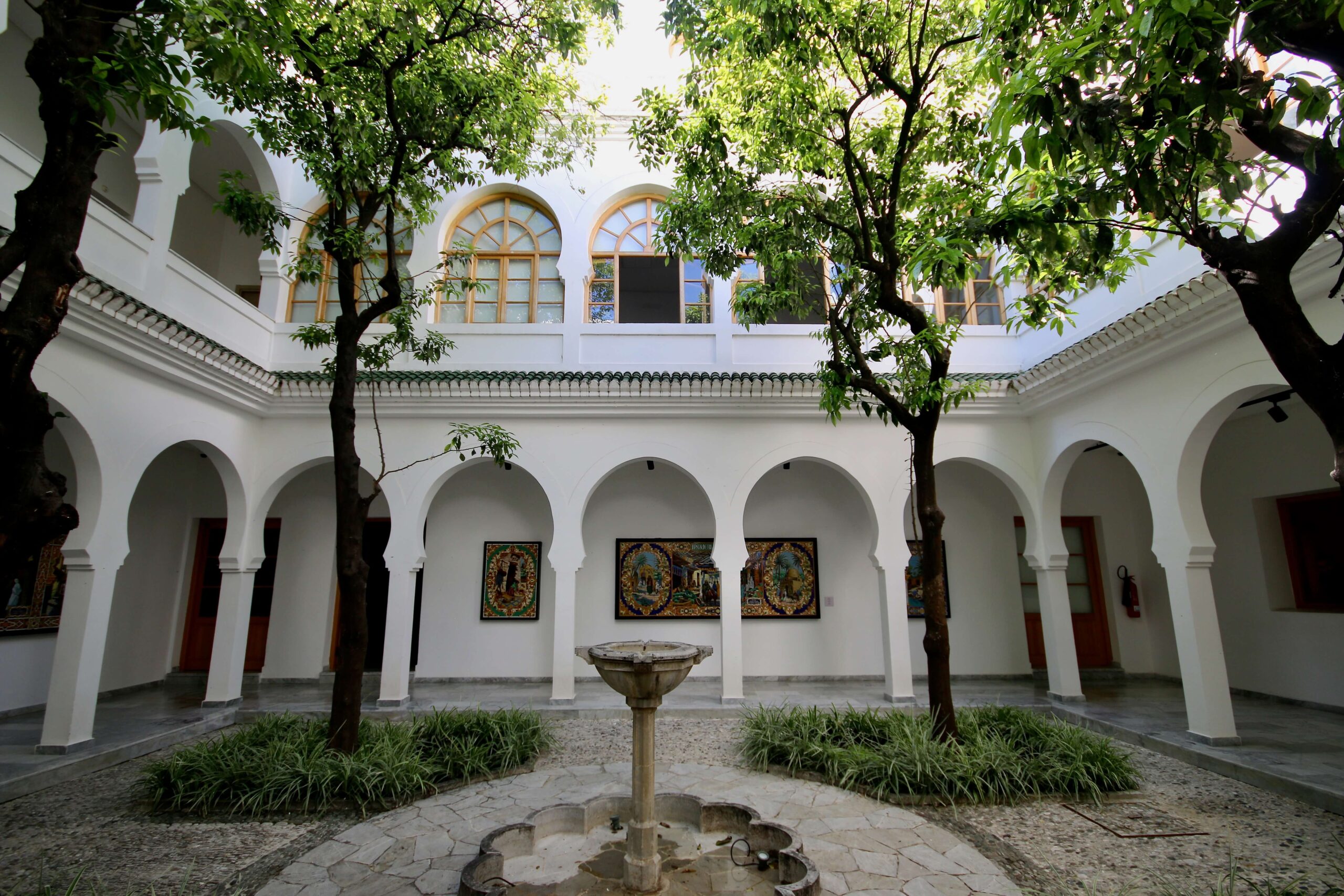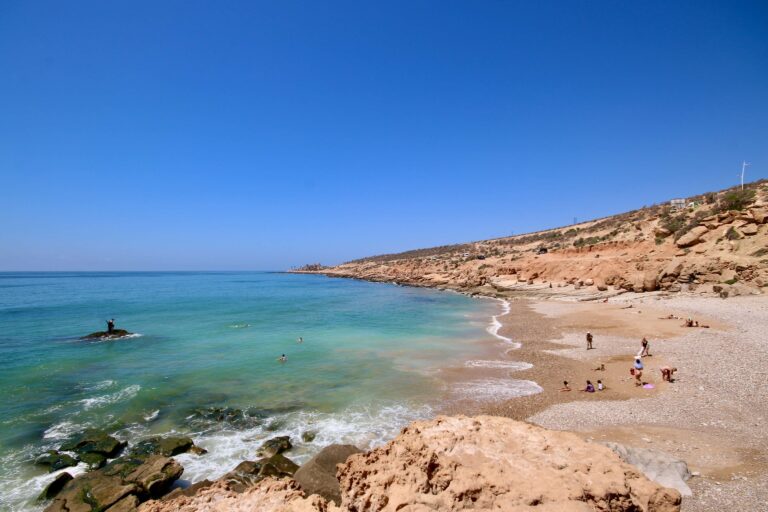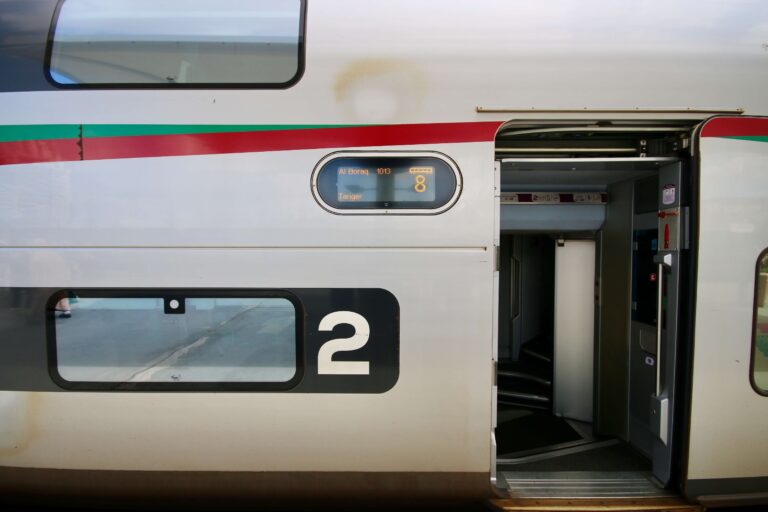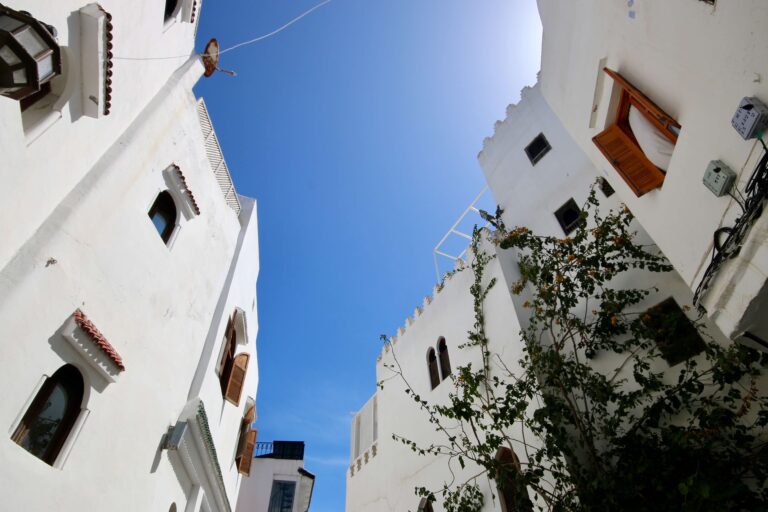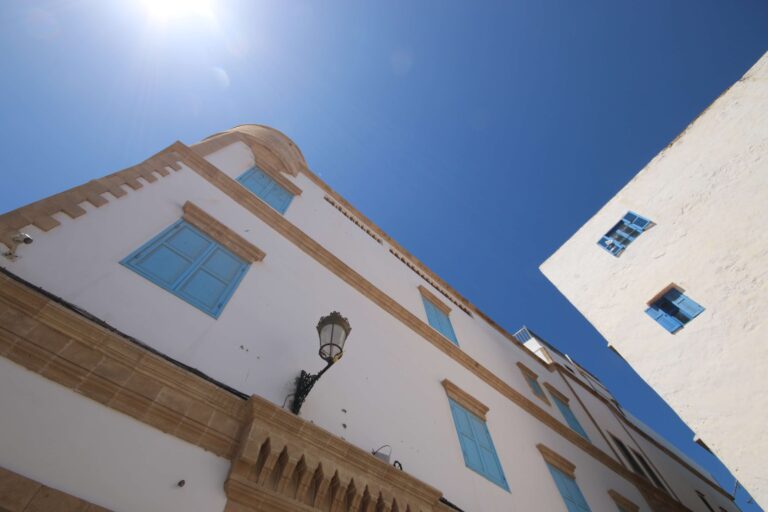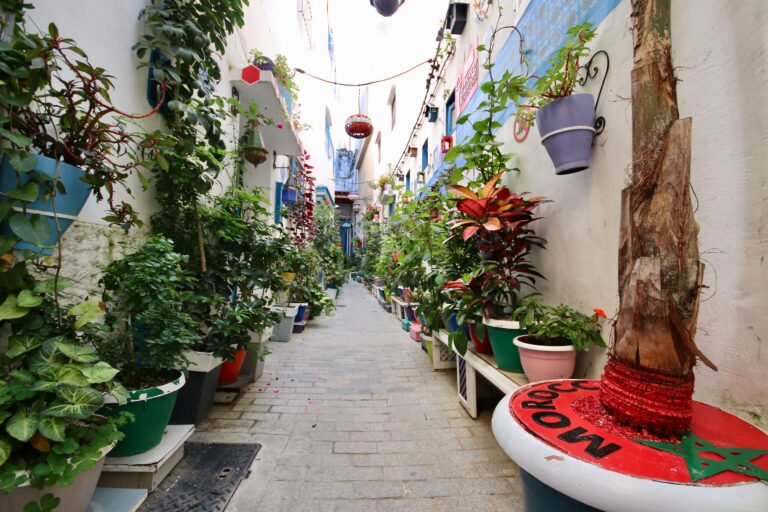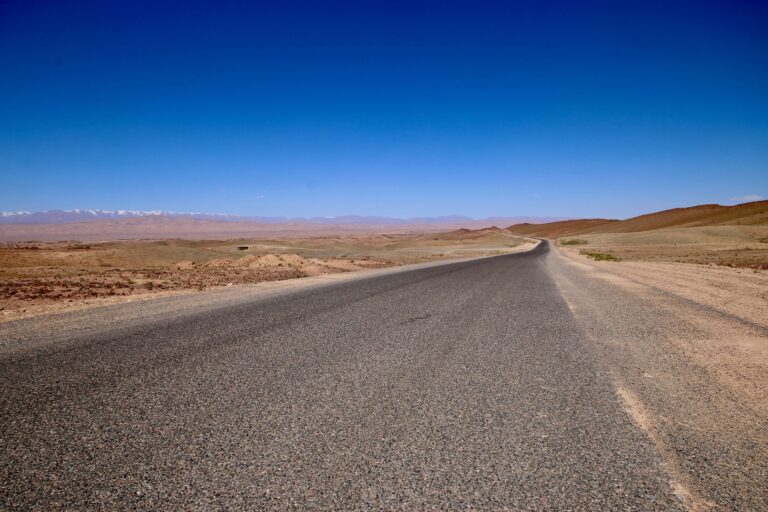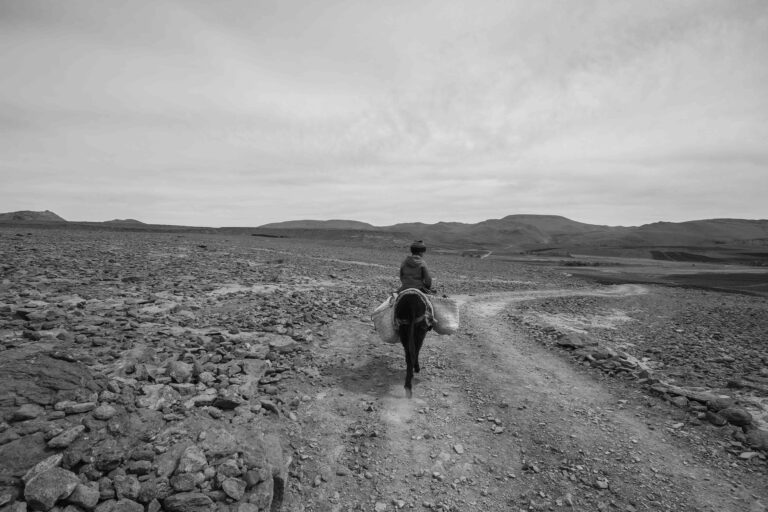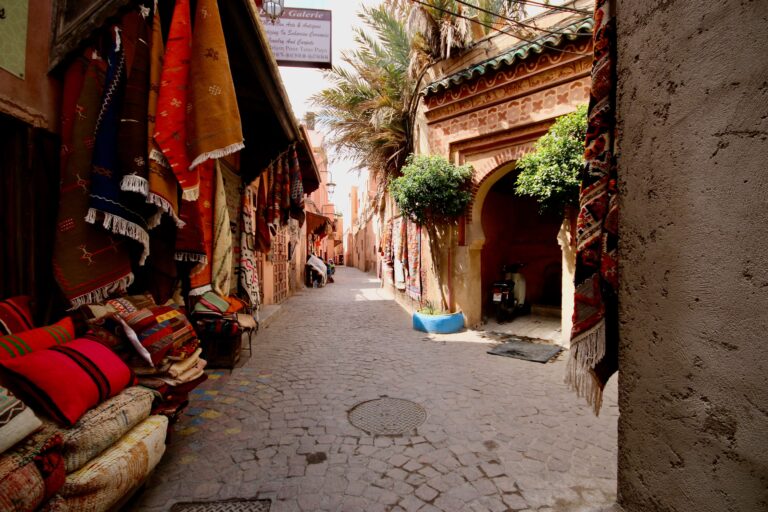12 Ways to Explore Morocco on a Budget as a Solo Traveller
Looking for ways to explore Morocco on a budget? Discover 12 of my top tips for solo travellers looking for an affordable adventure in this North African nation.
Having explored all over the world as a solo traveller, I’d say that Morocco lies somewhere in the middle budget-wise. It’s not super cheap or super expensive.
Costs in the country have risen dramatically in recent years. It’s definitely not the super affordable destination it used to be!
That being said, I still think Morocco provides fantastic value for what you get. The riad accommodations are amazing, the architecture is incredible and Moroccan cuisine is an experience in itself.
With a bit of know-how, you can still explore this North African gem on a budget, even as a solo traveller.
Drawing on my own experiences in the country, this article is all about helping you do just that and find savings in ways that work for you. Maybe you prefer to invest a bit more in a riad stay while saving by dining at local eateries. Or you might choose to utilise public transport so you can allocate your hard-earned cash to the souks.
In this article, discover 12 tried-and-tested ways to explore Morocco on a budget as a solo traveller, ensuring you return home with wonderful memories of a travel experience that reflects you, instead of post-travel-regret credit card debt.
For more inspiration, check out my article featuring 10 of my top travel experiences in Morocco.
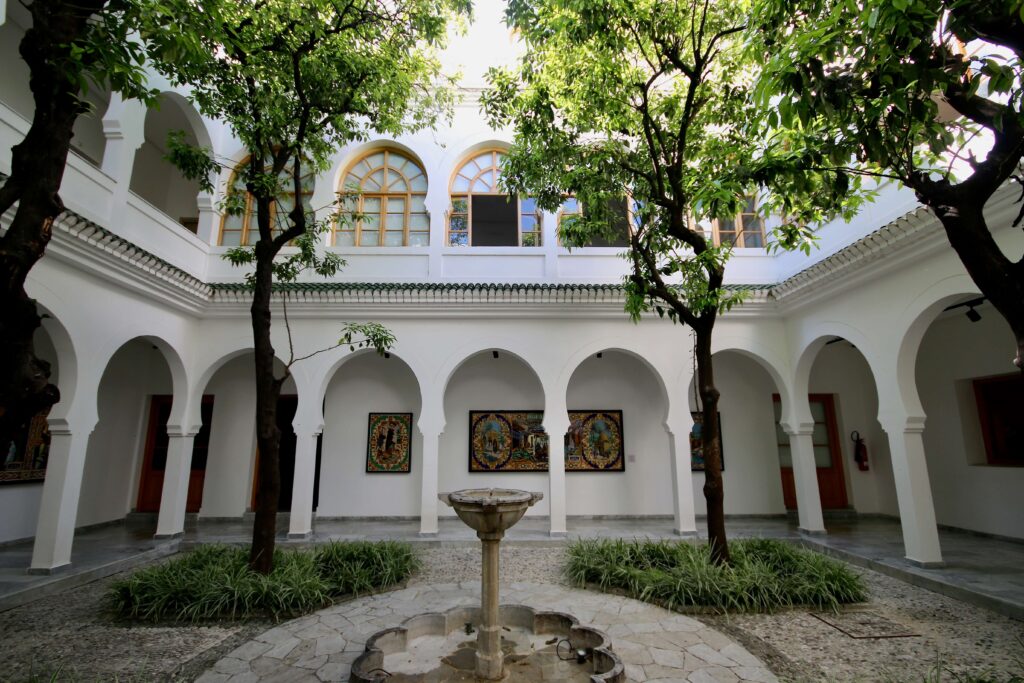
Disclosure: This article contains affiliate links, meaning I earn a small commission when you make a purchase. Affiliate links cost you nothing and ensure my content stays free!
Book your accommodation as early as possible
While accommodation prices in Morocco aren’t as low as they used to be, it’s still a relatively affordable country to explore as a solo traveller.
In the bigger cities, such as Marrakech and Fes, you’ll find a good choice of hostels offering shared dorms and affordable private rooms. Plus, you can find budget-friendly riads for a more traditional stay.
These days, most of Morocco’s accommodations can be found and booked through popular online platforms like booking.com. It’s a fantastic resource for comparing options before your trip. Just enter your destination and your budget per night, then explore the properties that fit your criteria. You might even find that your budget allows for something a bit more luxurious than you initially expected.
It’s worth mentioning that the most sought-after accommodations in Morocco tend to fill up quickly. So I’d recommend booking as far ahead of your travel dates as possible. If you leave it to the last minute, you’ll probably pay more for something less desirable.
While there used to be distinct peak and non-peak tourist seasons in Morocco, resulting in fluctuations in accommodation prices, I think this is becoming less clear-cut.
As more and more tourists flock here, there’s a demand for hotels and riads throughout the year. As a result, you’re unlikely to score amazing off-season deals.
That being said, sites like booking.com have started to get in on sales events like Black Friday. Personally, I’ve snapped up some discounted rates at Moroccan hotels and riads during this period. If you can organise your travel planning around it, I’d recommend doing the same!
If you’re travelling to Morocco solo, you’ll find more accommodation inspiration in my collection of articles here.
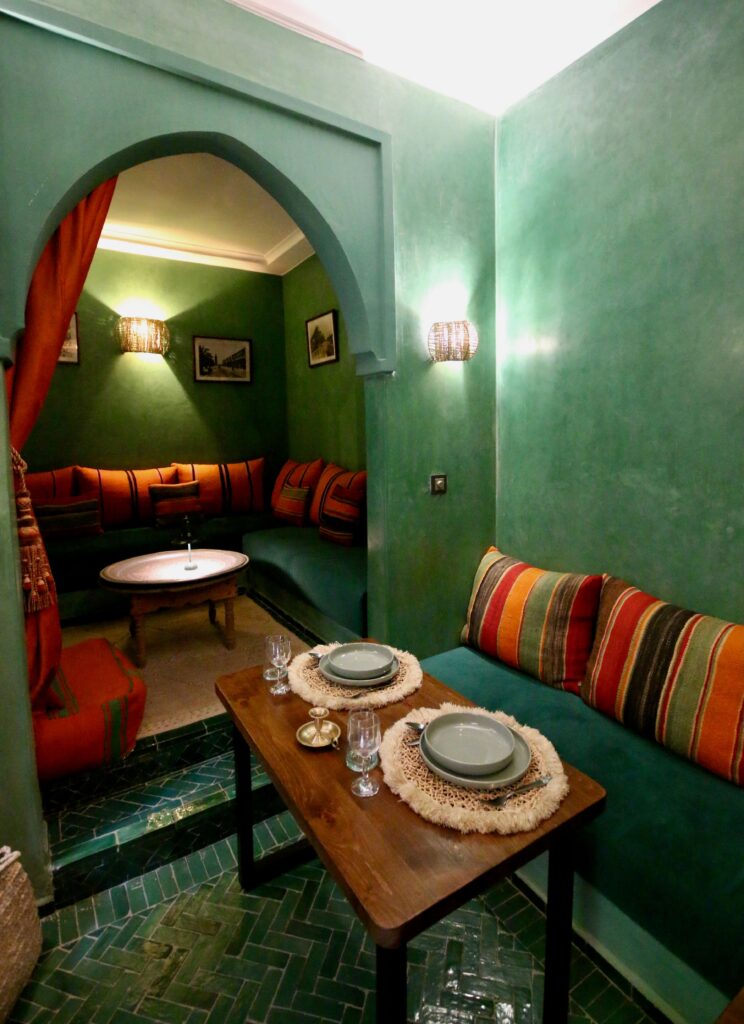
Shop around for ATMs/currency exchange services
The Moroccan dirham is a closed currency, which means it can only be exchanged or obtained within the country’s borders. As a result, you can’t pick up a few hundred dirhams before you arrive, ensuring you have cash on hand when you land at the airport.
Adding to the issue for budget travellers is the fact that airport currency exchange desks rarely give the best rates. And, in my experience, the ATM fees at popular tourist hubs are always a little higher.
When you withdraw dirhams from ATMs in Morocco using an international card, you will usually incur a transaction fee. This can differ significantly depending on the ATM.
Usually, the fee is displayed on the screen before you proceed with the transaction. You can choose to accept or decline it (and cancel the transaction).
Insider tip:
In my experience, the ATMs around popular tourist areas like Djemaa el-Fnaa in Marrakech always have high ATM fees and I avoid using them to withdraw cash. Similarly, the two ATMs available in Taghazout both have really high transaction fees (if they’re working).
To save on transaction fees, I search for ATMs in local business districts and only withdraw money if the fee displayed on the screen seems reasonable. If not, I’ll keep looking.
Yes, this means I have to be more organised with my finances and plan ahead to find a suitable ATM. But, in my opinion, it’s definitely worth the money I save. And once you find a “reasonable” ATM, you can keep going back there while you’re in the city.
Additionally, I try and withdraw as much cash as I’m comfortable carrying. This means I don’t have to keep coming back again and again.
Contactless payments with debit or credit cards are commonly accepted at larger businesses in Morocco. So try to use your cards for purchases whenever you can. This will help to reduce the number of times you have to withdraw cash from ATMs.
That being said, it’s important to have some cash for smaller purchases and tips, which are a vital part of Morocco’s service culture.
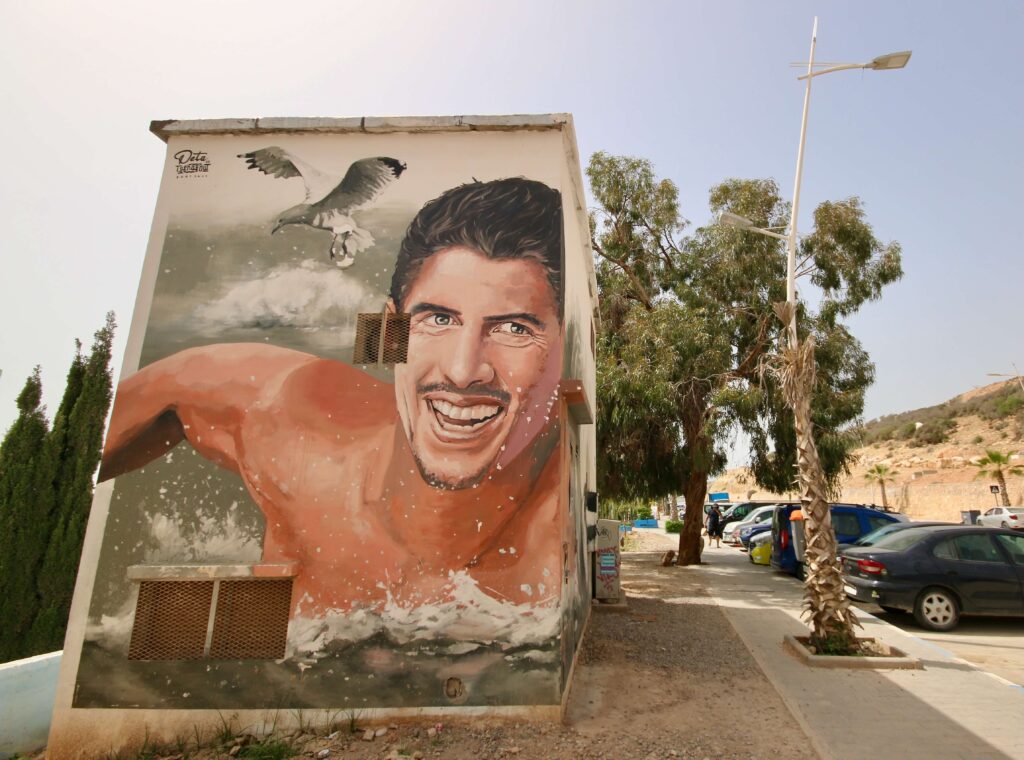
Eat where the locals do
Moroccan cuisine is a BIG part of the country’s cultural heritage. For me, sampling local dishes is a fantastic way to experience the country.
But most tourists are drawn to restaurants with menus in a language they are familiar with AND with an aesthetic that’s warm and inviting. In most cases, you’ll end up having a wonderful meal. But you’ll be paying a premium for it.
If you’re looking for ways to save money while travelling in Morocco, one of my top suggestions is to eat where the locals do. Seek out places that have a predominantly local clientele. And don’t be afraid to venture beyond the confines of the medina to find them.
In many Moroccan towns and cities, you’ll find a plethora of street food stalls offering local snacks. These range from skewered kebabs to hot-filled sandwiches and deep-fried treats. These stalls are often found near markets or public transport hubs. I guarantee the prices are MUCH lower than at tourist restaurants.
I always love going for a cheap and cheerful tagine at Souk El Had in Agadir or grabbing a bread roll filled with veggies and eggs on Derb Dabachi in Marrakech.
For healthy snacks, seek out local markets. Here, you’ll find a wide selection of fresh fruits, dates and nuts, all at reasonable prices. Unlike supermarkets, the fruit available at Moroccan markets is always in season and absolutely incredible.
Sometimes, vendors even provide samples for you to taste. This means you know exactly what you’re purchasing before you buy.
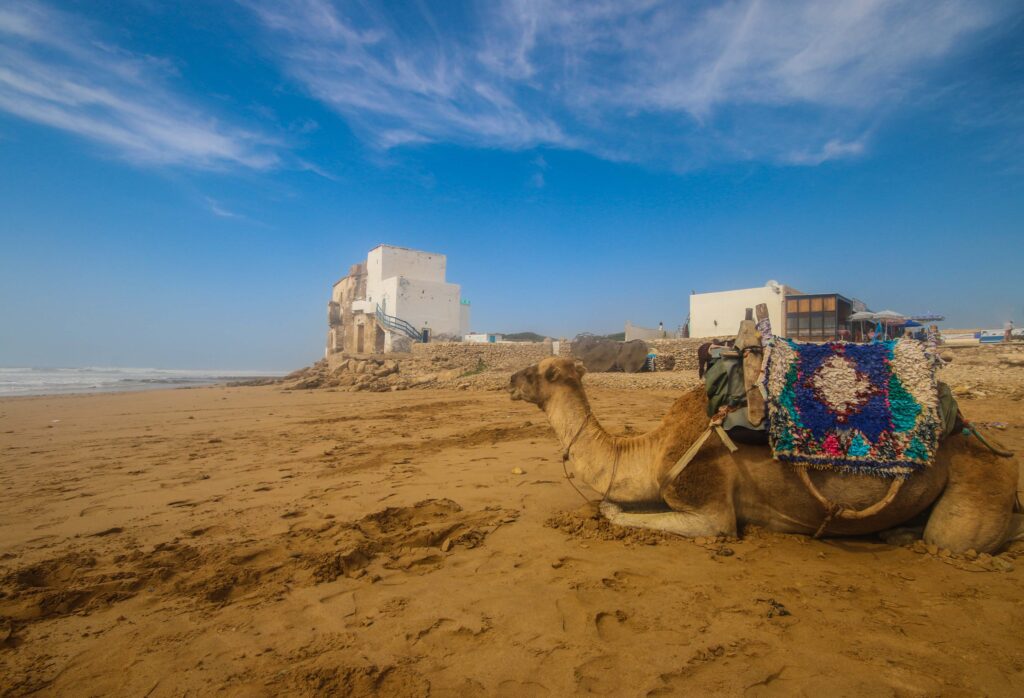
Soak up the comings and goings of everyday life
In my experience, you don’t need to spend a fortune to enjoy an authentic cultural experience in Morocco. In fact, you can absorb so much just by wandering around.
Yes, there are some wonderful museums and architectural landmarks with entrance fees that I recommend visiting. But I wouldn’t focus on them solely when planning your Morocco itinerary.
In the historic medinas, getting lost is all part of the experience. It’s a great way to uncover the essence of these captivating cities.
I love being absorbed in the everyday: the routines of the locals, the friendly interactions among neighbours and the children playing in the narrow streets.
Whether you’re wandering the ancient laneways of Fes or marvelling at the blue-hued buildings of Chefchaouen, you don’t have to spend excessively on tourist attractions to have an amazing time.
In fact, if you’re so intent on getting from one “paid” attraction to another, you’ll likely miss out on experiencing a WHOLE lot along the way.
If you are interested in visiting some of the museums and historical sites scattered across Morocco’s cities, be aware that entrance fees can vary widely. Some aren’t cheap!
If you’re travelling Min orocco on a budget, I suggest researching the places that pique your interest the most. Then, allocate your budget accordingly, instead of just checking off attractions from a must-see list and spending money unnecessarily.
Looking for off-the-beaten-path destinations in Morocco? You’ll find some of my favourites here.
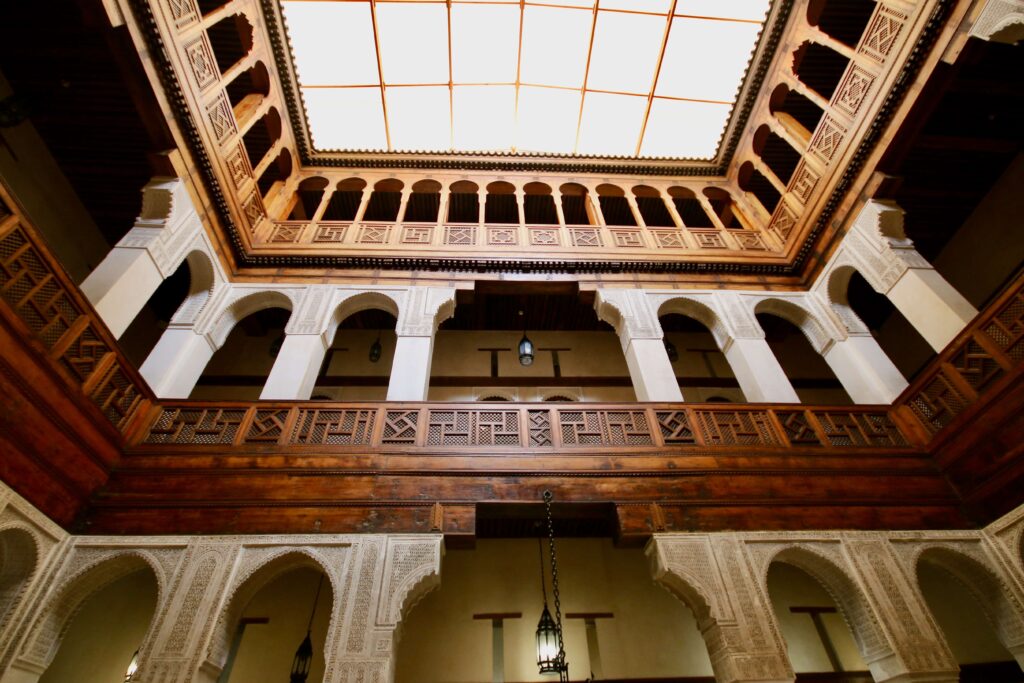
Embrace the neighbourhood hammam
While you can (and should) treat yourself to a spa-like private hammam while in Morocco, I also suggest visiting a neighbourhood hammam for a more local experience. These traditional bathhouses can be found in most towns and cities. They’re an integral part of life for local people.
Often hidden away on quiet side streets with little in the way of signage, neighbourhood hammams might not seem like much from the outside. But once you step inside, you’ll find yourself enveloped in a steam-filled, communal environment that has been a part of Moroccan culture for centuries.
I love going to local hammams – you come out feeling squeaky clean! But I do remember being nervous my first time. I wasn’t sure what to expect and I felt apprehensive about being naked in front of complete strangers.
If you feel the same way, I’ve put together an article explaining what you can expect at a Moroccan hammam to demystify it.
For starters, there are distinct entrances for men and women. You won’t be bathing together.
Expect lots of chatter (sometimes there are kids running around) and don’t be shy if someone offers to scrub your back. There’s a shared obligation to make one another as clean as possible!
The entrance fee at a neighbourhood hammam – usually around 15-25 Moroccan dirhams – is also very budget-friendly. It’s less than a tenth the price you’ll pay for a private hammam experience at a riad or hotel.
Plus, you’ll leave feeling refreshingly clean and might even make some new friends in the process.
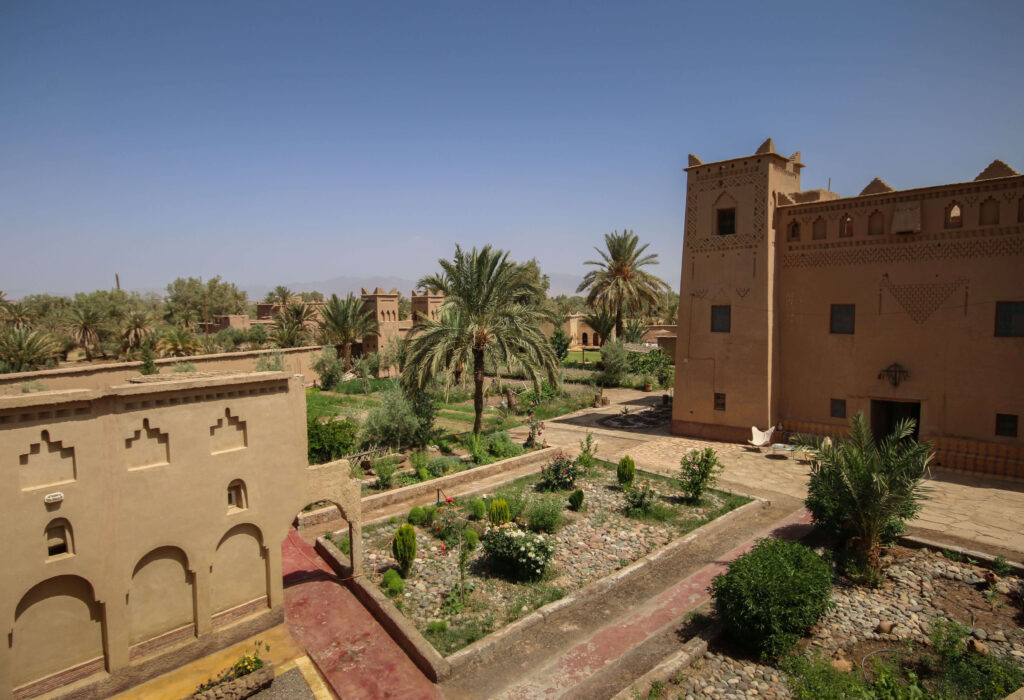
Haggle with humility and humour
Haggling is part and parcel of the shopping experience in Morocco, especially in the souks. That being said, it’s not customary everywhere and I wouldn’t recommend haggling for fresh produce or foodstuffs. It’s just not the done thing!
My husband excels at haggling! I’m always impressed by the respect he shows while negotiating prices that are fair for both parties. Observing him, I’ve learned that haggling, when done well, can lead to wonderful interactions with locals.
Although it might appear intimidating or awkward at first, haggling is a skill worth developing. This is particularly true if you’re travelling in Morocco on a budget and plan on purchasing handicrafts or souvenirs.
As a general rule of thumb, the initial price will be heavily inflated and serves as a starting point for negotiation.
A helpful guideline is to suggest about one-third of the initial asking price. Then, be ready to compromise somewhere in the middle.
Don’t hesitate to walk away if the vendor is unwilling to negotiate. More often than not, they will call you back with a more reasonable offer. If they don’t, it might mean you were negotiating too hard and the price you offered is unreasonable!
Always remember, respect is crucial and haggling should be approached with a good deal of humility and humour. At the end of the day, the vendor is simply trying to support themselves and their family. So you want a fair outcome for everyone.
For more information about shopping in Morocco’s souks, check out my detailed article here.
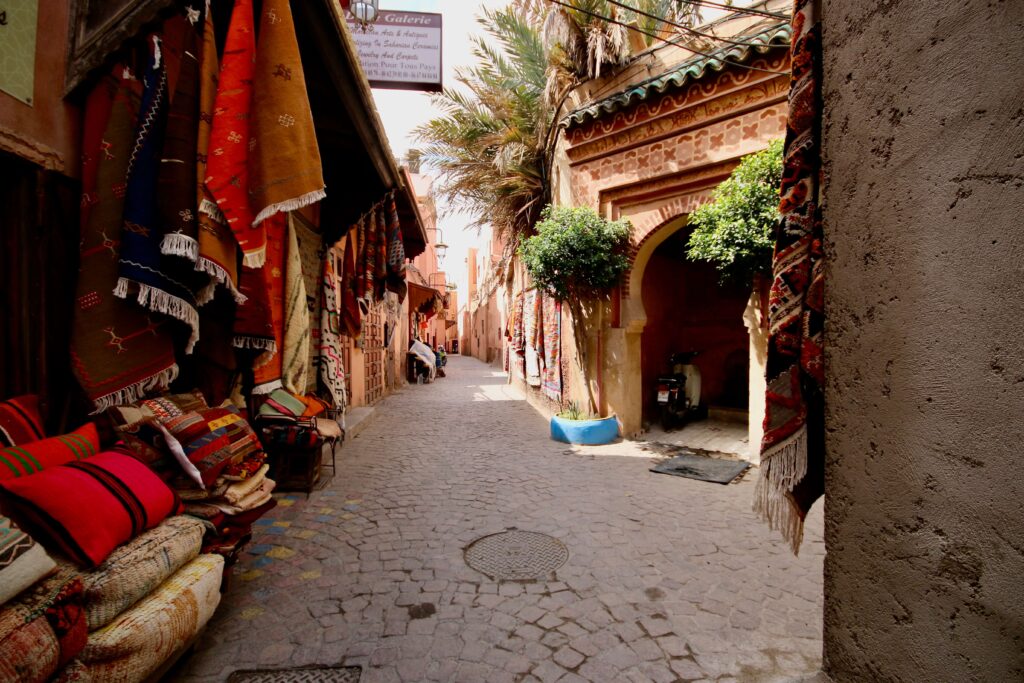
Negotiate taxi prices before you get in
If you’re taking taxis during your solo adventure in Morocco, it’s important to agree on the fare before getting in. If you’re using a metered taxi, you can ask the driver for a rough estimate.
In some cities (I’m looking at you Marrakech and Fes), I’ve experienced situations where meter tampering has taken place. Now, I always ask for a ballpark figure before getting in so the driver. That way, the driver has less opportunity to scam me while we’re en route to my destination.
Local insight:
Not all Moroccan taxi drivers are out to scam you. Personally, I’ve had some wonderful experiences where drivers have gone out of their way to get me safely to my destination, without any type of surcharge. That being said, you do need to be cautious as Moroccan taxi scams do occur.
To assist you in negotiating taxi fares while travelling in Morocco on a budget, I’d suggest doing some research in advance. This will help you to better understand the typical rates for rides in the area.
Asking the staff at your accommodation (or fellow travellers) can provide you with a rough idea of standard prices. This gives you the knowledge to negotiate effectively when the driver offers a fixed fare.
Within cities, you’re looking for small “petit taxis”. They carry up to three passengers, so don’t be surprised if other commuters get in along your route. As a rough estimate, a short journey in a petit taxi usually costs anywhere from 20 Moroccan dirhams. Most petit taxis are metered.
The larger “grand taxis” are used for longer routes between towns and cities (these accommodate six passengers) and work on fixed fares.
For more info about the difference between grand taxis and petit taxis, check out my detailed article here.
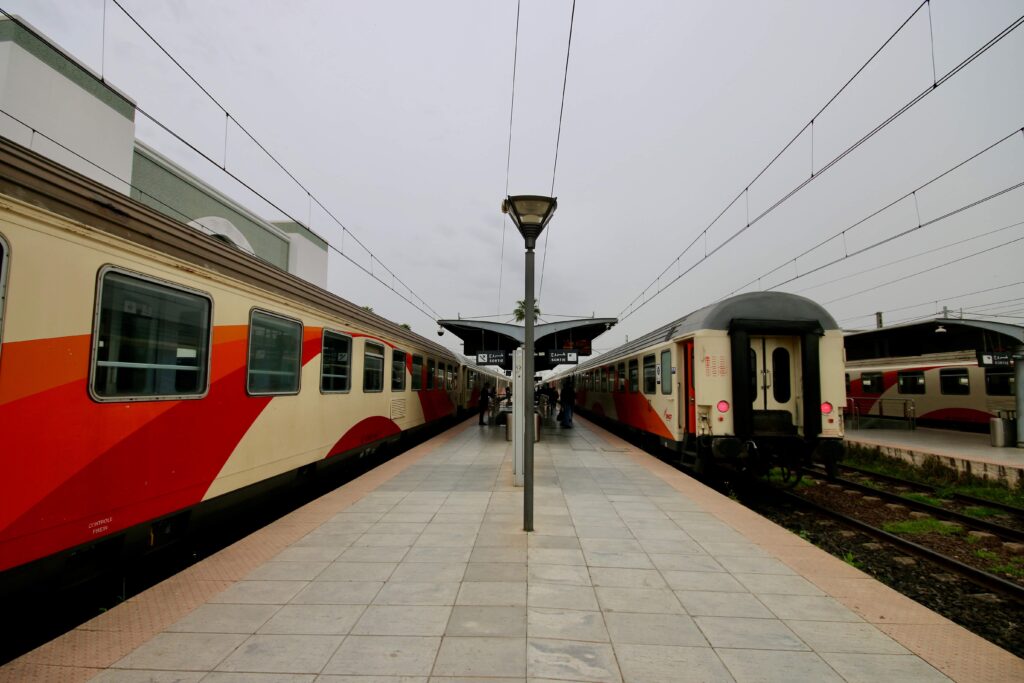
Take advantage of public transport
Morocco boasts a good public transportation system that allows both residents and tourists to get around at a relatively low cost. By utilising public transport, you’ll avoid the expense of taxis AND you won’t have to negotiate prices. It’s all fixed fares!
Within most cities, you’ll find public buses that travel to all corners, providing a cost-effective means of getting around. Both Rabat and Casablanca also have modern tram systems, with fares comparable to local buses.
Tickets for buses are usually purchased from the driver, while tram tickets are dispensed from machines at each stop.
In Morocco’s north, a fantastic rail network connects major cities like Tangier, Fes, Casablanca and Marrakech. Moroccan trains offer a comfortable and efficient service with relatively affordable ticket prices.
This includes Africa’s first high-speed rail line, the Al Boraq, which transports passengers from Casablanca to Tangier in just two hours.
Morocco’s rail system is managed by ONCF and tickets can be reserved at the stations, online through their website or via third-party platforms like 12Go.
For cities not served by the railways (particularly in Morocco’s south), there’s a comprehensive bus network run by companies such as Supratours and CTM. These buses are comfortable and clean, with air-conditioning and reclining seats.
Again, bus tickets in Morocco can be booked online or via 12Go, which allows you to compare various companies serving the same route.
An alternative for travelling between towns and cities is grand taxis, shared vehicles that can accommodate up to six passengers. These depart once full and tend to be slightly faster than buses. However, I would argue they are far less comfortable.
With grand taxis, you have the option to pay for a single seat (this is usually a fixed-price rate) or book the entire vehicle (you’ll need to negotiate the fare).
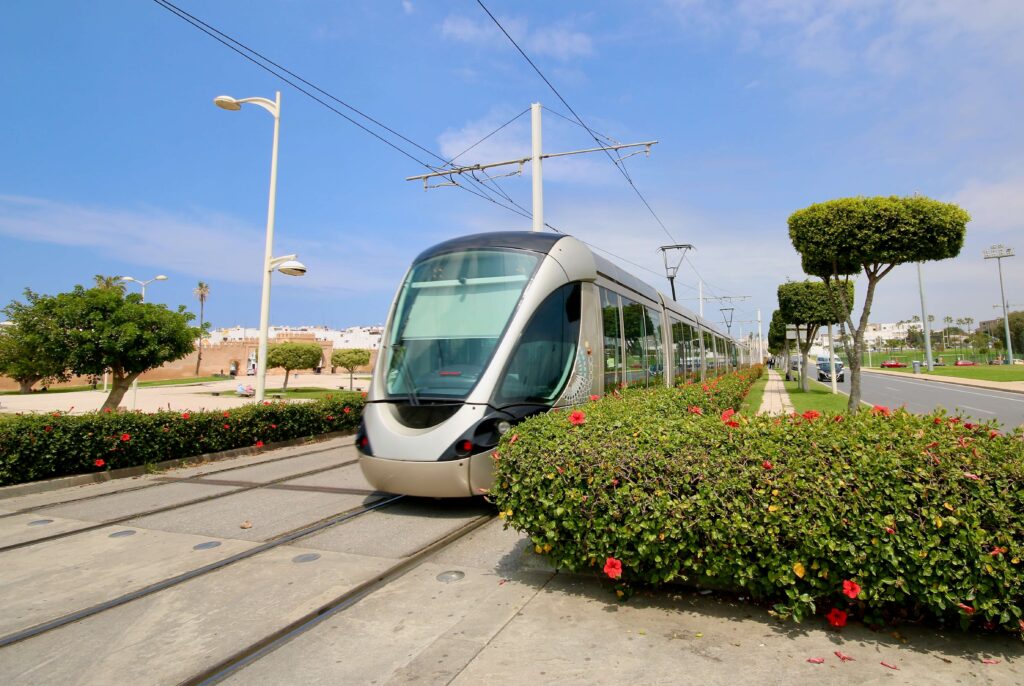
Research the best car hire deals
Renting a car in Morocco is a fantastic way to get around the country. It gives you the flexibility to create your own itinerary and stop whenever you want. Even as a solo traveller, it’s relatively affordable and driving in Morocco is easier than you might think.
I’ve rented a car several times in Morocco. I love that it allows me to set my own pace and venture off the beaten tourist track. Some of the country’s most rewarding destinations are difficult and/or time-consuming to reach using public transport, such as Dades and Todra gorges.
To score the best deals on Moroccan rental cars, I’d recommend searching via a reliable platform like Discover Cars, which compares offers from over 700 suppliers to ensure you find the most affordable rates. You can filter the results based on customer reviews, ensuring you book with a reputable agency that has high-quality vehicles and good customer service.
Top tip:
Usually, the most economical option for renting a car in Morocco is to pick up and return your vehicle at the same airport location. In Marrakech, prices for compact rental cars start from as low as 100 Moroccan dirhams per day. This allows you to walk straight off your flight and into your rental car, without the hassle (and expense) of negotiating taxi fares.
When budgeting the costs of a rental car in Morocco, always consider the expense of petrol/gas and any additional insurance you may want to purchase.
Morocco also has several autoroutes, or toll roads, which require you to pay a fee each time you use them. To save time at the toll booths, I’d recommend getting a Jawaz Pass, a reloadable card that lets you pass through the dedicated Jawaz lanes quickly.
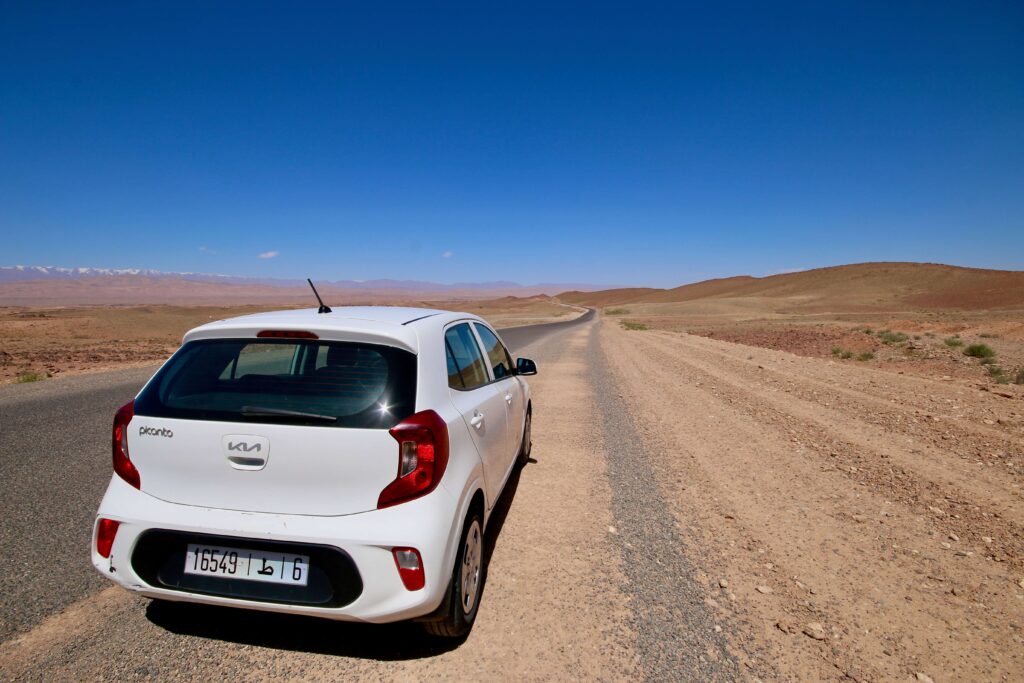
Avoid alcohol
As Morocco is a predominantly Islamic country, drinking alcohol is typically frowned upon. Nevertheless, there are some locals who do enjoy a drink and many people recognise that it’s a part of other cultures. So they won’t judge you if you do.
While alcohol isn’t as easy to find as it might be back home, it’s available at select bars and restaurants. Additionally, there are bottle shops located in larger cities, although they aren’t always easy to find (you’ll have to ask a local).
It’s worth noting that alcohol can be quite expensive in Morocco, largely due to a lack of demand and availability. Personally, I struggle to find good quality red wine in Morocco that isn’t exorbitantly priced, especially when compared to what I would typically pay back home in Australia.
By choosing to refrain from alcohol during your time in Morocco, you can save a considerable amount of money. Instead, you can put that cash towards having incredible experiences that you wouldn’t be able to have back home.
Consider it a chance to detox. Who knew travelling in Morocco on a budget could also be beneficial for your health!
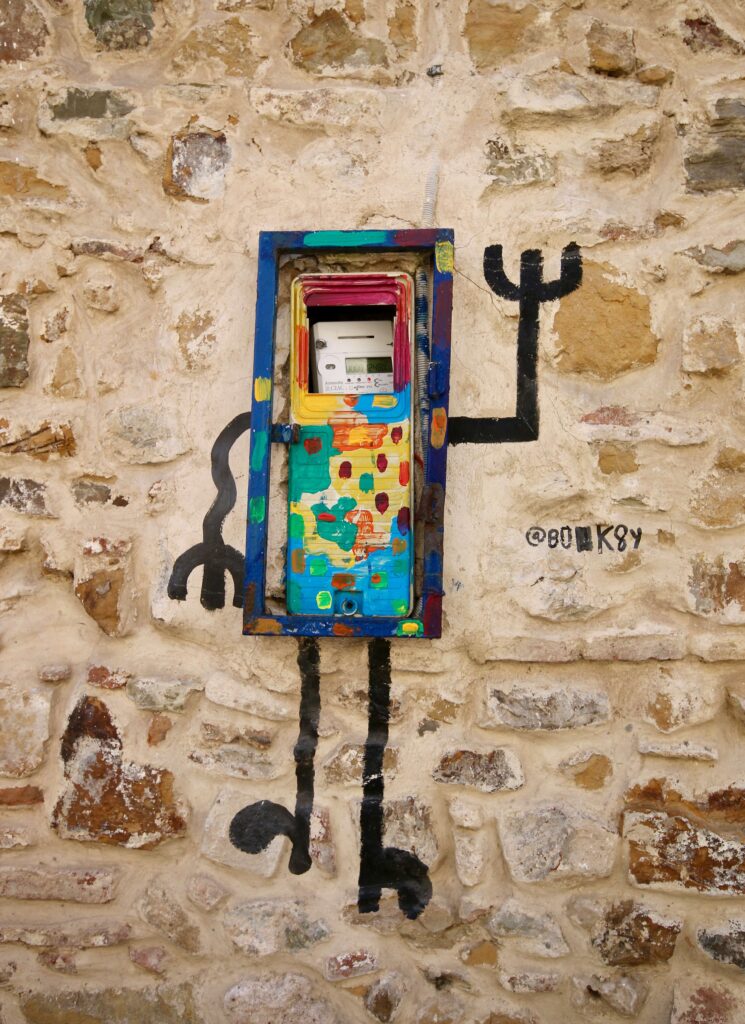
Be one step ahead of pickpockets
It’s unfortunate that pickpocketing is sometimes an issue for travellers around the globe and Morocco is no exception. There’s nothing more frustrating than trying to stick to a tight travel budget, only to have it completely blown apart by the actions of dishonest individuals.
Although I have never been a victim of petty crime during my time in Morocco, I’m aware that it happens, particularly in crowded tourist areas like the Fes medina and Marrakech’s Djemaa el-Fnaa.
To avoid becoming an easy target, it’s important to remain alert while you’re out and about and take preventive steps. Avoid wearing flashy jewellery or expensive watches that could attract unwanted attention. Also, keep your money safely tucked away, ideally in an inside pocket or a travel money belt.
To learn more, this article details some of the most common scams in Morocco for solo travellers to be aware of.
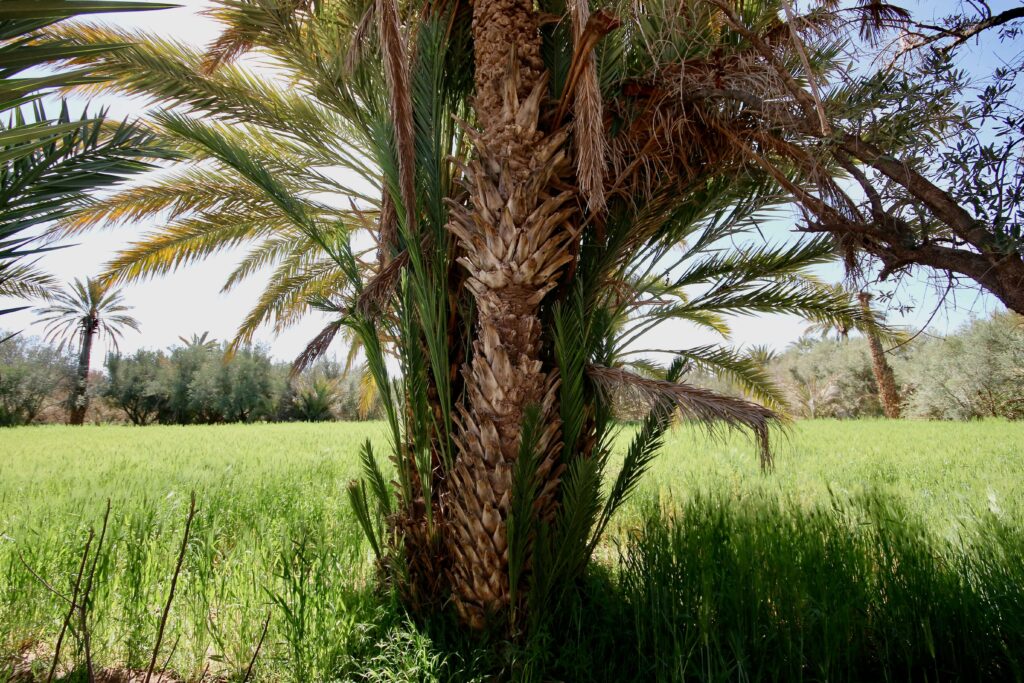
Take out travel insurance for Morocco
My final money-saving tip for Morocco is to purchase a travel insurance policy that protects you against theft. This will make it possible to recover the value of lost belongings if a worst-case scenario happens.
Although getting a travel insurance policy for Morocco requires an upfront payment, it can save you a lot more in the future. Most importantly, it guarantees that you will be reimbursed for any out-of-pocket medical/hospital expenses if a health emergency arises.
SafetyWing is my go-to resource for finding travel insurance for Morocco, with options for both short-term and long-term travellers.
Personally, I never travel abroad without travel insurance. I don’t think the risk of ending up with a huge medical bill or lost goods is worth the comparably small upfront fee.
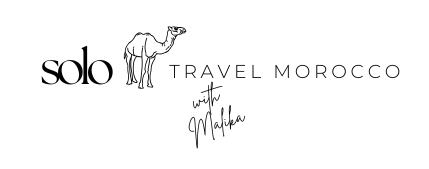
PLAN YOUR TRIP WITH MY FAVOURITE RESOURCES:
Find hotels via Booking
Book tours and attractions via Viator or GetYourGuide
Find a rental car via Discover Cars
Book flights via Kiwi or Booking
Search for buses and trains via 12Go or Omio
Get travel insurance via SafetyWing
Buy a digital eSIM with Airalo
By purchasing through my links, you’ll be supporting my website at no additional cost to you
-
When to Join a Group Tour (and When to Stay Solo) in Morocco
I think there are three types of solo travellers. Those who want to travel completely independently, those who want to join a multi-day tour for the duration of their trip and those who want to combine both. I would say I’m in the latter group. Travelling independently is usually my preferred option. But I also…
-
Is July a Good Time to Visit Morocco? A Solo Traveller’s Guide
The big question if you’re thinking about visiting Morocco in July is: Can you handle the heat? July is one of Morocco’s hottest months. Inland cities such as Marrakech, Fes, Meknes and Ouarzazate regularly see daytime temperatures climbing above 40°C. Sightseeing in the middle of the day can be exhausting and I would recommend against…
-
Al Boraq High-Speed Trains: What Solo Travellers Should Know
Since it launched in late 2018, Morocco’s Al Boraq high-speed train has transformed how travellers move around the country. I’ve ridden it several times now (from Tangier to Rabat and from Kenitra to Casablanca) and it’s a really fun (and highly efficient) experience! Travelling at speeds of up to 320 km/h, Al Boraq trains are…
-
Why Morocco Is Ideal for Low-Impact Solo Travel
I often look back on the way I travelled in my 20s and realise it was all about me getting the most out of my destination. I wanted to see as much as I could on the limited budget I had available, and have lots of photos as proof of my trip. Fast-forward a couple…
-
Is June a Good Time to Visit Morocco? A Solo Traveller’s Guide
June in Morocco is somewhat special and (dare I say) one of the best months to visit the country. It sits between spring’s mild temperatures and the peak summer heat, leading many travellers to overlook it entirely. But for solo travellers who don’t have to take their annual holidays in July/August and want to avoid…
-
Is May a Good Time to Visit Morocco? A Solo Traveller’s Guide
If you’re wondering whether May is a good time to visit Morocco as a solo traveller, this guide is for you! It details everything from weather to crowds and the best places to visit in Morocco in May to help you decide if it’s right for you. May in Morocco is hinting at summer, but…

I’m Malika, an Australian-born travel writer with an intense love for Morocco. I first travelled here solo in 2014 and after meeting (and marrying) a local, I made this North African gem my home.
Over the last 10 years, I have explored the country extensively, travelling to all corners with my partner, friends and solo.
